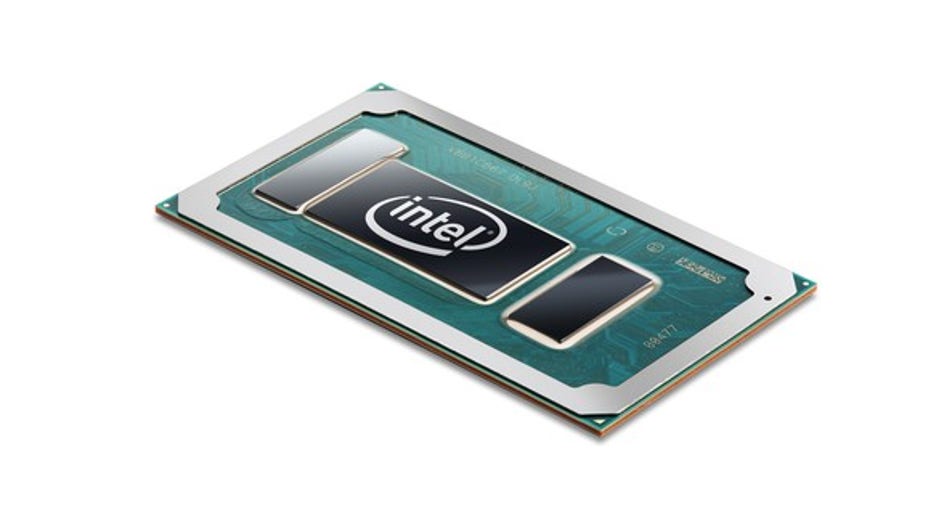The Personal Computer Market Plunged 5.7% in 2016

Market research company IDC announced on Jan. 11 that the category of products that it refers to as "traditional [personal computers]" dropped 1.5% year over year during the fourth quarter of 2016 and by 5.7% over the course of the entirety of 2016.
Apple's new MacBook Pro computers could help the company regain lost share in 2017. Image source: Apple.
IDC said that the first quarter of 2016 was "still constrained by high inventory, free Windows 10 upgrades, and difficult comparisons to commercial replacements in 2014 that were fueled by the end of support for Windows XP."
That said, IDC says that beginning in mid-2016, the personal computer market had "moved beyond these inhibitors and seen stabilizing commercial demand."
IDC also said that the "contraction of the consumer [personal computer] market has also slowed as growth and competition from tablets and phones has eased up."
Analyst Neha Mahajan with IDC did say that the fourth-quarter numbers "might signal regained consumer confidence in the [personal computer] market, with most of the sales being driven by aggressive holiday promotions," cautioning that "it needs to be seen how much of the real demand is carried forward in the coming quarters."
This report certainly doesn't spell bad news for the personal computer market -- a contracting rate of decline is certainly preferable to a stable or accelerating rate of decline -- but it does seem to reinforce the commonly held notion that the market isn't likely to be a growth one going forward.
Vendor share shifts
Although the personal computer market is down overall, there were some winners and losers among the major personal computer vendors. IDC's press release included significant details of the performances of the top five personal computer vendors by units -- Lenovo (NASDAQOTH: LNVGY), HP Inc (NYSE: HPQ), Dell, ASUS, and Apple (NASDAQ: AAPL).
The report shows that Lenovo, the top vendor by units, saw shipments drop 3%, outpacing the overall market, and growing its market share to 21.3%, up from 20.8% in the prior year.
HP Inc, which has talked at length about its efforts to gain share in the personal computer market (particularly in more lucrative sub-segments like premium thin-and-light PCs, gaming, and so on) managed to grow shipments by 1.3%, taking its share up to 20.9% from 19.4%.
Privately held Dell enjoyed 4.3% growth, the fastest growing of the bunch. Its market share moved up from 14.2% to 15.7%.
ASUS saw a modest 0.8% drop in unit shipments, which -- considering that the overall market dropped by 5.7% -- led to share growth from 7% to 7.4%.
Apple -- which specializes in premium personal computers running its macOS operating system -- suffered a 9.8%-unit decline, taking its share down from 7.4% to just 7.1%.
And, finally, the rest of the market combined -- which added up to about 72 million units -- suffered a drop in collective market share from 31.2% to 27.7%.
In other words, the strong got stronger (save for Apple), and the weak got weaker.
What this "consolidation" means for market players
IDC noted that there was "accelerated market consolidation" going on "as the largest players moved to lock up supply."
This consolidation might have some interesting long-term consequences on the industry at large. Consolidation of power among system vendors should give them additional leverage/buying power with the major component vendors like microprocessor specialist Intel (NASDAQ: INTC), which supplies most of the central processing units (CPUs) that go into personal computers today.
Intel's new seventh-generation Core processors were recently launched to allow computer vendors to refresh their systems. Image source: Intel.
The bigger the volumes any personal computer vendor commands, the steeper the volume discounts those vendors can demand from their suppliers. Such a dynamic may lead to decreased margins for the suppliers and increased margins for the system vendors (due to lower component costs).
Consolidation may also mean that the winners should enjoy improved profitability as competitive pressures ease (potentially driving gross profit margins up) and the revenue shares of said winners improve (perhaps driving operating leverage).
10 stocks we like better than Apple When investing geniuses David and Tom Gardner have a stock tip, it can pay to listen. After all, the newsletter they have run for over a decade, Motley Fool Stock Advisor, has tripled the market.*
David and Tom just revealed what they believe are the 10 best stocks for investors to buy right now... and Apple wasn't one of them! That's right -- they think these 10 stocks are even better buys.
Click here to learn about these picks!
*Stock Advisor returns as of January 4, 2017
Ashraf Eassa owns shares of Intel. The Motley Fool owns shares of and recommends Apple. The Motley Fool has the following options: long January 2018 $90 calls on Apple and short January 2018 $95 calls on Apple. The Motley Fool recommends Intel. The Motley Fool has a disclosure policy.



















